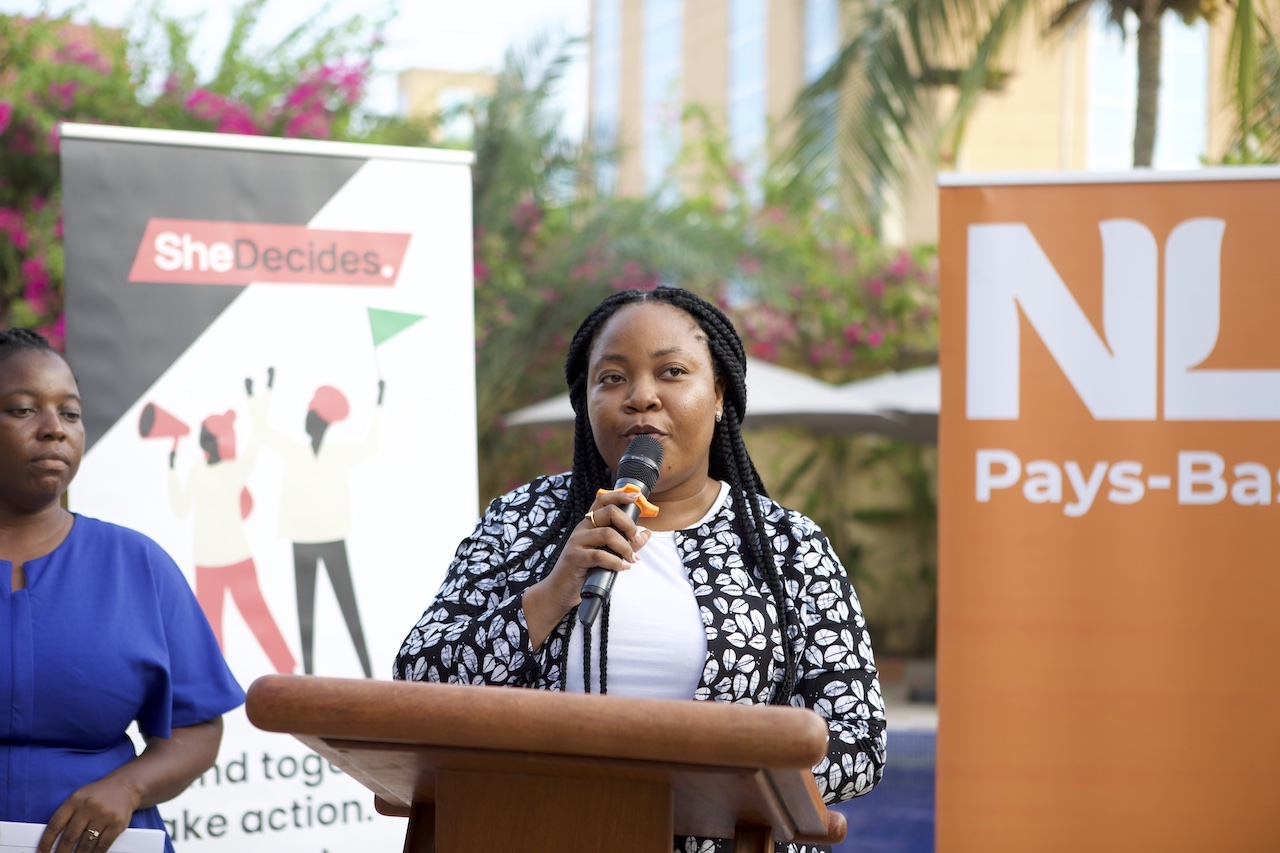Can She Make Her Safe Choice in Benin? Let’s hear from youth activist Méola Yahouedeou
26th June 2024
In 2022, in a bid to protect women’s health, the Government of Benin expanded the legal grounds for abortion, making it one of the most liberal abortion laws in Africa. Now, women in Benin can legally access abortion when the pregnancy is likely to aggravate or cause a situation of material, educational, professional or moral distress.
We spoke with Beninese youth activist Méola Yahouedeou, who has been championing the importance of safe abortion in her country for many years, as a youth activist for the Mouvement d’Action des Jeunes (MAJ) and her current work with the Association Béninoise pour la Promotion de la Famille (ABPF)*. Méola’s advocacy efforts have been part of the Rutgers supported She Makes her Safe Choice programme.

Méola, can you tell us about what access to safe abortion looks like in Benin, and for young people in particular?
Well, in Benin, abortion remains an extremely sensitive issue from a socio-cultural point of view. For many years, and until very recently, it was difficult to discuss abortion in public or even with your family. Young people used to get information about abortion from friends. But more recently young people - like me - and youth organizations and programmes like “She Makes Her Safe Choice”, have worked to break the taboo on abortion and especially to inform young people about the risks of clandestine abortions and the harm that comes from stigmatizing abortion.
Why was legalizing safe abortion so important to advancing the health of young women in Benin?
In December 2021, Benin adopted a legal framework that has considerably broadened the conditions for access to safe abortion for young people. This change in law is crucial for young people, because according to available data, unsafe abortions are the second leading cause of maternal deaths in Benin.
And this statistic is based on only the data available to us. Young people are not always properly counted among those who are sexually active, so the data is not accurate and is not collected thoroughly enough. We know that in clinics, in hospitals, there are so many cases of young girls who come in, in extremely critical situations due to unsafe abortions. Unfortunately, there are still many people offering unsafe and uncontrolled abortion information and services - on social networks, in street corners, in neighborhoods, by word of mouth. The methods they offer are dangerous to young people's health. And many young girls die from undergoing an unsafe abortion.
The silence that surrounds the issue has killed many of our sisters, many of our young people, who may have been forced into incestuous sexual relations, who may have been forced into sexual relations with their employer or other individuals in the household where they have been placed. These girls have no one to talk to, and because they are afraid of society's judgment, they seek unsafe solutions that unfortunately may take their lives. So, today it is important to address illegal and unsafe abortions if we want to save more lives.
Can you tell me about your work in advancing safe abortion?
Since 2019 I’ve worked with different programs to inform young people in communities, including in remote rural areas and villages, about safe abortion and the consequences of unsafe abortions.
I'm currently coordinating a program in Benin called Ado Avance Ensemble, which works to give young people access to information and SRHR services, including safe abortion.
I also work to raise awareness about the expansion of the new law on abortion, so that young people can understand how it gives them the legal right to request access to abortion services if they need them.
How is safe abortion an important part of SRHR for young people?
Sexual and reproductive health and rights are very important to young people because for a person to be healthy they must be healthy in all aspects of their life: mental, physical and especially reproductive.
Safe abortion is a crucial part of this. It's fundamental. Why? Because it gives young people, especially young girls, the opportunity to choose, to pursue their studies, to achieve, to live a life away from what people decide for them, away from what society wants from them.
And what next steps do you think the government should take to continue advancing women’s and young people’s health?
The government in Benin is on the right track. As young people we didn’t expect to see such progress so soon. The government is currently working to strengthen the capacities of service providers. We hope that as a result Benin's health facilities will become more efficient and better adapted to the varied needs of people.
But we also need to have secure clinics; clinics that really respect the privacy and confidentiality of young people, that are safe spaces where young people can go to seek services if they need them.
We also need to strengthen outreach to young people. We need the government and various authorities to help us with this because we are sometimes hampered by geographical or linguistic barriers, for example, not all young people who need information are literate. So, we need programs that can help us communicate better so that we can better share and disseminate information.
* ABPF is an IPPF Member Association (MA). Most MAs have established their own youth movements. For ABPF this is MAJ.

